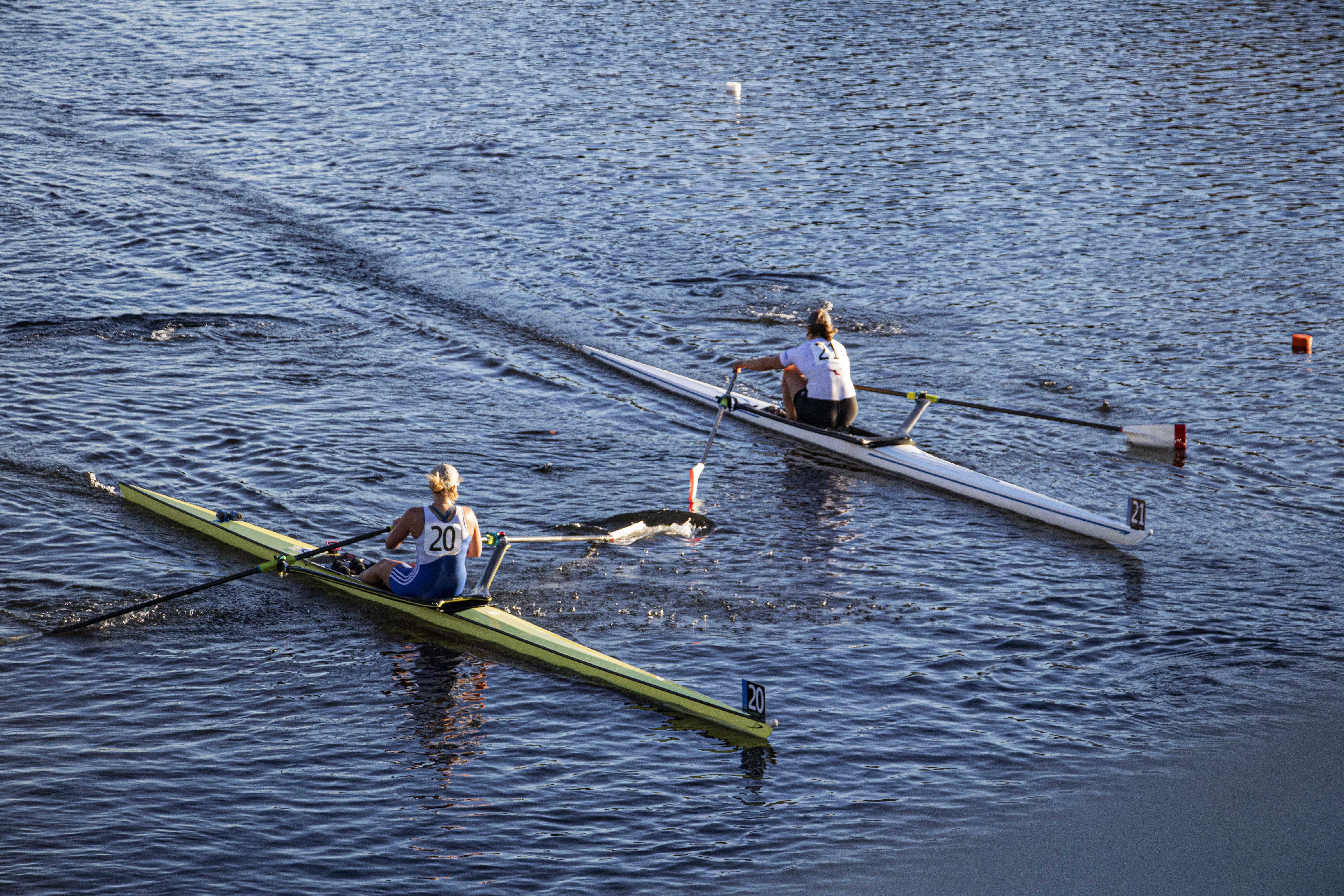Head Of The Charles Regatta race coordinators implemented a new sustainability initiative to reduce the event’s environmental footprint. The Regatta brings in over 11,000 athletes and more than 400,000 spectators to Boston and Cambridge.
тАЬItтАЩs about time,тАЭ Courtney Forrester, the sustainability chair for the Regatta, said in an interview. тАЬWe should have been doing this a long time ago. The Regatta has always provided trash and recycling services, but they were never monitored or maintained. We had a lot of trash coming out of the Regatta and other multi-day events in the area.тАЭ
The HOCR is the largest two-day Regatta in the world, bringing in crew teams and rowers from 26 countries to compete on the Charles River in Cambridge.

Last year, the Regatta collected 16 tons of waste,┬аwhich largely consisted of food and packaging. To combat this issue, HOCR placed composting stations throughout the course. The Regatta positioned 120 volunteers at the larger stations to monitor the waste going into each bin to make sure athletes and spectators used the composting bins correctly.
тАЬWeтАЩre trying to educate people on whatтАЩs compostable,тАЭ volunteer and Courtney ForresterтАЩs mother, Pat Forrester,┬аsaid in an interview. тАЬThe whole goal is to reduce the amount of waste the Regatta produced, even by a little bit.тАЭ┬а
Courtney Forrester said people often incorrectly recycle or compost items.┬а
тАЬIf the bins are left with no one monitoring them, they get contaminated,тАЭ Courtney Forrester said. тАЬPeople want to compost or recycle something, we call it ‘wish-cycling.’ People think it should be recycled so they put it in the recycling bin and wish that it will be recycled. Ultimately, it has nothing to do with wishingтАФyou have to do it right.тАЭ
Pat Forrester said that┬аafter monitoring the bins and educating people on how to compost, she noticed a significant difference in the speed at which they fill up.
The HOCR also implemented a policy that prohibits single-use plastic products at the Regatta.┬а
тАЬA lot of the waste is food and packaging because people are buying things from vendors and then disposing of the materials,тАЭ Courtney Forrester said. тАЬWith the initiative, no vendors are allowed to sell any plastic bags as well as single-use plastic bottlesтАФit has to be a can or another container.тАЭ
Many of the athletes heard about the sustainability initiative before the event, including Shannon Colford from Manhattan College in Riverdale, New York, who placed 22nd in the WomenтАЩs Club Eights event.
тАЬI think itтАЩs really important,тАЭ Colford said in an interview. тАЬSince rowing is an outdoor sport and we have to take care of our environment, I think the movement is very fitting.тАЭ
Royal Dutch Rowing Federation, a club from Amstelveen, Netherlands, placed eighth in the MenтАЩs Championships Eights event. Michiel Oyen, who competed in the Regatta twice, said the club spent six weeks preparing for the race.
тАЬWeтАЩre all rowers from smaller events, like singles and pairs,тАЭ Oyen said in an interview. тАЬNow weтАЩre in the eights, we spent a lot of time learning to adjust to each other.тАЭ
After traveling across the Atlantic, Obbe Tibben said the club just wants a win.
тАЬItтАЩs certainly one of the races you want to win once in your life,тАЭ Tibben said in an interview. тАЬIt was a long journey to get here, so now we just want to win and come back with a medal. We donтАЩt want to go home with nothing.тАЭ
Angela Moquin and Cassandra Cunningham from Chinook Performance Racing traveled from Philadelphia, Pennsylvania to place first and defend their title in the WomenтАЩs Masters Eights. Moquin and Cunningham started competing in the HOCR in 1990, but Cunningham said the course does not grow easier after so many years of racing.┬а
тАЬWind, other racers, and getting older all make the course difficult,┬аeven though weтАЩve been doing this Regatta for so long,тАЭ Cunningham said in an interview.
As competitors in the WomenтАЩs Masters event, which is designated for women over 40 years old, Moquin said finding time to train with full-time jobs can be difficult.┬а
тАЬWe try to train six days a week for around 60 to 90 minutes,тАЭ Moquin said in an interview. тАЬSince weтАЩre older, most of us have jobs and families we have to take care of, so that can get in the way of training sometimes, but we aim for six practices a week.тАЭ
Benjamin Ross, who grew up rowing on the Charles River, placed 47th in the MenтАЩs Club Fours with Bowdoin College. He said he still finds the course extremely challenging.
тАЬThe first time I raced we hit a lot of other boats and a bridge,тАЭ Ross said in an interview. тАЬWe found ourselves in a cluster through all of the sharp turns,┬аso we ended up hitting a few of them.тАЭ
Ross said his team spent the entire season preparing for this Regatta.┬а
тАЬItтАЩs the pinnacle of our fall season,тАЭ Ross said. тАЬWe train mornings five to six days a week and do a team lift twice a week.тАЭ
While this race is important to Ross and his team, coming back to the Charles River and being a part of the culture of the Regatta meant a lot to him.┬а
тАЬObviously we want to go fast and do well, but itтАЩs just a great culture and a great experience,тАЭ Ross said. тАЬThe Regatta really culminates what rowing means to me. I havenтАЩt stopped smiling since I got here.тАЭ